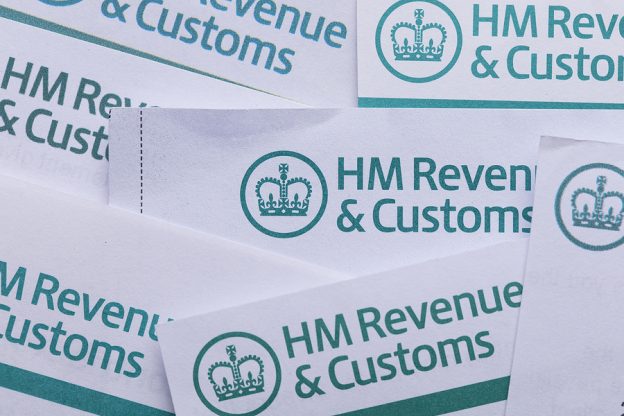
HMRC administer the entire tax system for the UK. That’s an enormous task in itself. 2020-21 added the dual challenges of leaving the European Union and dealing with the impacts of the COVID-19 pandemic.
That’s a lot. And HMRC will publish their Annual Report and Accounts this Autumn. This is their annual summary of the previous quarterly performance reports and monthly customer service performance data.
This is their analysis to date.
What were HMRC’s priorities?
So far, HMRC has a lot to be proud of. Each individual human working in HMRC has had the same pressures as the rest of us. As a workforce, they had to adapt to incorporate the COVID-19 protocols. And at a management level they had to prioritise carefully, to make sure that the absolute essentials continued alongside the introduction of new schemes and regulations.
Since the beginning of the pandemic in March 2020, the HMRC’s News Story says:
“Our priorities since then have been clear:
- to protect livelihoods – through our delivery of the government’s COVID-19 support packages
- to deliver the UK’s smooth transition from the European Union
- to keep delivering the essential services that keep the tax system running”
As a result, some usual HMRC work has been temporarily shelved and many processes are taking longer. Simply because the same number of staff have been redistributed to different areas. This is frustrating, if you were in the middle of a tax investigation or you’re waiting for your tax rebate to come through. But it’s totally understandable, considering how much brand new work HMRC have implemented.
New Legislation on Leaving the European Union
The impact of leaving the EU has taken a secondary position in economic reporting, but that doesn’t mean HMRC hasn’t been working on it behind the scenes.
HMRC tells us that they remotely trained 3,000 HMRC employees in over 50 new processes and systems since 31st December 2020 (the end of the transition period).
And for businesses? HMRC created nearly 600 separate pieces of guidance to ensure people can properly prepare themselves.
Other items on HMRC’s Leaving the EU to do list were:
- grant scheme for “customs intermediary sector”, to increase capacity
- Trader Support Service for businesses using the Northern Ireland Protocol – already processed 359,000 declarations from its 36,000 registered traders
- New border customs “pop-up sites” and other facilities
In more general terms, HMRC has also been a crucial component of efficient movement of goods, especially health supplies. This has partly been achieved with a new 24/7 support helpline for “urgent border issues”. They’ve done all this and kept clearance times of 95% within two hours and 100% within four hours.
It’d be easy to miss all these changes if you’re not in the world of international trade or distribution. But all these things are crucial for timely trade into and out of the UK.
HMRC COVID-19 Financial Support
From news bulletins alone, even if we didn’t benefit from any of the government’s schemes, we’re much more familiar with these details.
HMRC had to quickly bring the Chancellor’s financial support packages to life, to make sure businesses, jobs and individuals were protected. Let’s reflect on the size of this:
- Coronavirus Job Retention Scheme: in 2020-21, 1.3 million employers claimed £58 billion to furlough 11.4 million taxpayers
- Self Employment Income Support Scheme: in 2020-21, 8.8 million people claimed £24.5 billion
Astonishingly, people got their money within six days of an online application. And the systems themselves were put together in six weeks (from nothing).
The Eat Out To Help Out scheme was also during this financial year. It supported 78,000 restaurants, cafes and pubs with 160 million meals. These payments were received by the businesses within five working days.
Customer service is crucial in such difficult circumstances. HMRC opened a specific COVID-19 helpline on March 16th 2020, staffed by 5,000 customer advisers. During the year, they spoke to 2.5 million customers, helping them with any and all issues around tax and accessing financial support. Their overall customer service satisfaction rating was 95%. Calls were answered within an average of three minutes and six seconds. They also had a webchat option, which helped half a million enquires in this time period.
Of course, these aren’t the only schemes set up to help businesses and individuals financially survive the pandemic. But this is the most recently published set of figures illustrating their scope and success.
HMRC still collecting taxes
HMRC acknowledges that financial survival has been the aim of individuals and businesses. The government put several regulations into place that enabled HMRC to be more flexible, such as:
- Deferred tax bills – like the VAT deferral scheme
- Paying tax bills in instalments – the Time To Pay scheme
- Deferral of HMRC compliance enquiries
HMRC continues to deal with individual taxpayers and businesses with a ‘let’s fix it’ attitude. They know where people are, given everything since the pandemic started. HMRC still has to do their job, but have more flexibility than ever in the way they collect taxes.
“Our message to customers is simple: if you can pay your taxes then you should do so but if you’re struggling, we want to work with you to agree a plan based on your financial position.”







